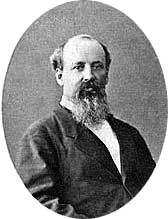Presidency of Abraham Lincoln
Presidency of the 16th president of the United States
The presidency of Abraham Lincoln began on March 4, 1861, when he was inaugurated as the 16th president of the United States, and ended upon his assassination on April 15, 1865. Lincoln, a member of the Republican Party, led the nation through the American Civil War, its bloodiest war and its greatest moral, constitutional, and political crisis. He preserved the Union, abolished slavery, strengthened the federal government, and modernized the U.S. economy.
Election of 1860[edit | edit source]
Lincoln's election in 1860 was a pivotal moment in American history. He won the presidency on a platform that opposed the expansion of slavery into the western territories, which led to the secession of several southern states and the formation of the Confederate States of America.
Civil War[edit | edit source]
The Civil War began in April 1861, shortly after Lincoln took office. His primary goal was to restore the Union. Lincoln faced immense challenges, including managing the war effort, dealing with dissent within the Union states, and navigating complex international relations.
Emancipation Proclamation[edit | edit source]
On January 1, 1863, Lincoln issued the Emancipation Proclamation, which declared that all slaves in the Confederate states were to be set free. This executive order shifted the war aims of the Union, adding moral force to the Union cause and preventing European powers from intervening on behalf of the Confederacy.
Gettysburg Address[edit | edit source]
On November 19, 1863, Lincoln delivered the Gettysburg Address at the dedication of the Soldiers' National Cemetery in Gettysburg, Pennsylvania. In this brief but profound speech, he reiterated the principles of human equality espoused by the Declaration of Independence and redefined the Civil War as a struggle not just for the Union, but also for the principle of human equality.
Domestic Policies[edit | edit source]
Lincoln's domestic policies were focused on the war effort and included measures to support the economy and infrastructure. He signed the Pacific Railway Acts, which facilitated the construction of the First Transcontinental Railroad, and the Homestead Act of 1862, which provided land to settlers in the West.
Assassination[edit | edit source]
Lincoln was assassinated by John Wilkes Booth on April 14, 1865, while attending a play at Ford's Theatre in Washington, D.C. He died the following day, making him the first U.S. president to be assassinated. His death was a significant blow to the nation, which was still reeling from the Civil War.
Legacy[edit | edit source]
Lincoln is widely regarded as one of the greatest presidents in American history. His leadership during the Civil War and his efforts to end slavery have left a lasting legacy. He is commemorated in numerous monuments, including the Lincoln Memorial in Washington, D.C.
Related Pages[edit | edit source]
- Abraham Lincoln
- American Civil War
- Emancipation Proclamation
- Gettysburg Address
- Assassination of Abraham Lincoln
- Lincoln Memorial
- Republican Party (United States)
Search WikiMD
Ad.Tired of being Overweight? Try W8MD's physician weight loss program.
Semaglutide (Ozempic / Wegovy and Tirzepatide (Mounjaro / Zepbound) available.
Advertise on WikiMD
|
WikiMD's Wellness Encyclopedia |
| Let Food Be Thy Medicine Medicine Thy Food - Hippocrates |
Translate this page: - East Asian
中文,
日本,
한국어,
South Asian
हिन्दी,
தமிழ்,
తెలుగు,
Urdu,
ಕನ್ನಡ,
Southeast Asian
Indonesian,
Vietnamese,
Thai,
မြန်မာဘာသာ,
বাংলা
European
español,
Deutsch,
français,
Greek,
português do Brasil,
polski,
română,
русский,
Nederlands,
norsk,
svenska,
suomi,
Italian
Middle Eastern & African
عربى,
Turkish,
Persian,
Hebrew,
Afrikaans,
isiZulu,
Kiswahili,
Other
Bulgarian,
Hungarian,
Czech,
Swedish,
മലയാളം,
मराठी,
ਪੰਜਾਬੀ,
ગુજરાતી,
Portuguese,
Ukrainian
Medical Disclaimer: WikiMD is not a substitute for professional medical advice. The information on WikiMD is provided as an information resource only, may be incorrect, outdated or misleading, and is not to be used or relied on for any diagnostic or treatment purposes. Please consult your health care provider before making any healthcare decisions or for guidance about a specific medical condition. WikiMD expressly disclaims responsibility, and shall have no liability, for any damages, loss, injury, or liability whatsoever suffered as a result of your reliance on the information contained in this site. By visiting this site you agree to the foregoing terms and conditions, which may from time to time be changed or supplemented by WikiMD. If you do not agree to the foregoing terms and conditions, you should not enter or use this site. See full disclaimer.
Credits:Most images are courtesy of Wikimedia commons, and templates, categories Wikipedia, licensed under CC BY SA or similar.
Contributors: Prab R. Tumpati, MD







